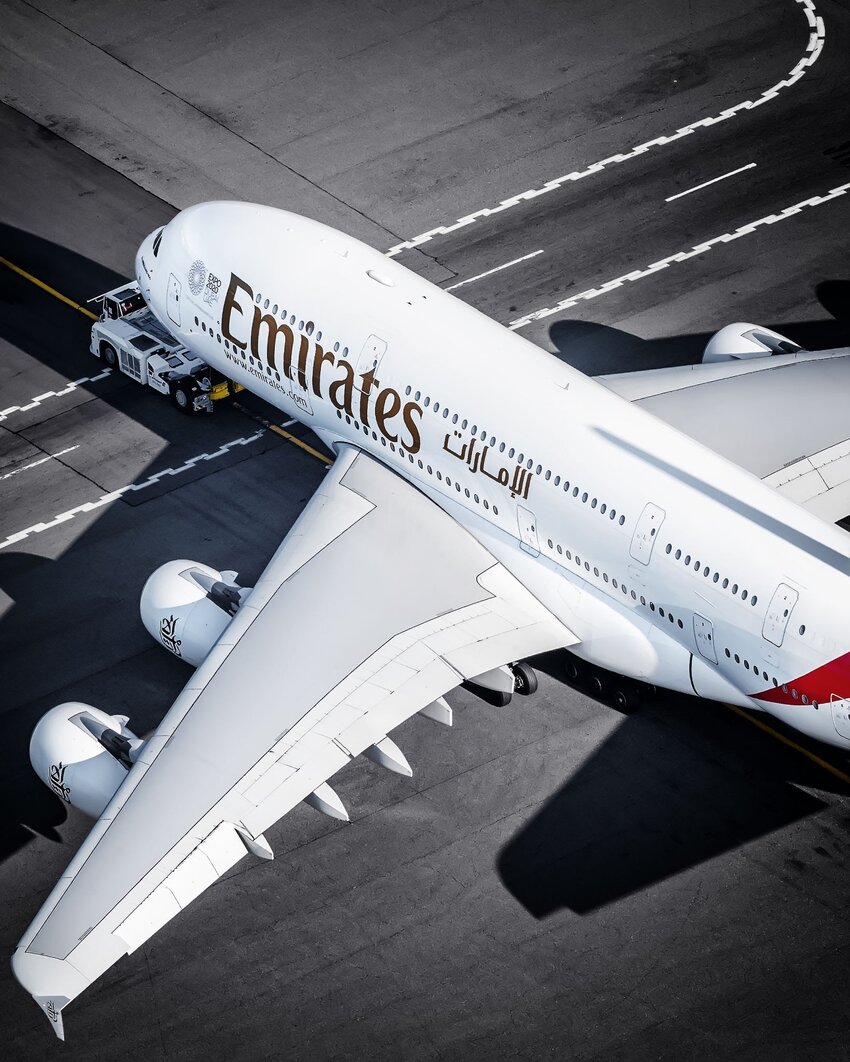Review Report: Emirates Airline – A Study in Excellence and Innovation
Introduction
Emirates Airline, one of the world’s leading international carriers, is more than just an airline—it’s a symbol of luxury, innovation, and strategic excellence. Founded in 1985, Emirates has grown into a global powerhouse, connecting Dubai to the world with over 150 destinations. This report delves into the key aspects that make Emirates a standout in the aviation industry, focusing on its innovative customer experience, global expansion strategy, technological integration, sustainability initiatives, corporate governance, crisis management, and brand positioning.
1. Innovative Customer Experience and Service Excellence
Unparalleled In-Flight Experience
Emirates Airline has redefined air travel, offering an unmatched in-flight experience. The airline’s dedication to luxury is evident in its first-class cabins, which feature private suites, onboard showers, and lounge bars. Even in economy class, Emirates sets the standard with spacious seating, gourmet meals, and a state-of-the-art entertainment system boasting over 4,000 channels.
Personalized Services
The airline’s commitment to personalized service is another hallmark of its excellence. From multilingual flight attendants to tailored meal options, Emirates ensures that every passenger feels valued and catered to. This focus on customer satisfaction has earned the airline numerous awards, including the prestigious Skytrax World Airline Awards.
2. Global Expansion Strategy and Market Dominance
Strategic Route Development
Emirates’ global expansion is a masterclass in strategic route development. The airline has carefully selected destinations that not only connect Dubai to major economic hubs but also to emerging markets. This strategy has enabled Emirates to dominate key international routes and become a preferred choice for travelers worldwide.
Dubai as a Global Hub
Central to Emirates’ success is its base in Dubai, which has been transformed into a global aviation hub. The airline’s ability to connect East and West through Dubai has been a key driver of its growth. Moreover, the development of Dubai International Airport into one of the busiest airports globally is closely tied to Emirates’ strategic vision.
3. Technological Integration and Innovation
Fleet Modernization
Emirates boasts one of the youngest and most technologically advanced fleets in the world. The airline’s investment in next-generation aircraft, such as the Airbus A380 and Boeing 777, underscores its commitment to innovation. These aircraft not only enhance fuel efficiency but also improve passenger comfort and operational reliability.
Digital Innovation
Emirates has been at the forefront of digital innovation in the airline industry. The airline offers a seamless digital experience from booking to boarding, with features like mobile check-in, biometric boarding, and in-flight connectivity. These technological advancements have not only improved operational efficiency but also enhanced the overall customer experience.
4. Sustainability Initiatives and Environmental Responsibility
Fuel Efficiency and Carbon Offset Programs
Emirates is acutely aware of its environmental responsibilities. The airline has implemented several initiatives to reduce its carbon footprint, including investing in fuel-efficient aircraft and optimizing flight routes to minimize fuel consumption. Additionally, Emirates participates in carbon offset programs, allowing passengers to contribute to environmental sustainability.
Sustainable Catering and Waste Reduction
Beyond fuel efficiency, Emirates has also focused on sustainable catering practices. The airline sources ingredients from local suppliers and has reduced single-use plastics onboard. Moreover, Emirates has implemented waste reduction strategies, including recycling initiatives and efforts to minimize food waste.
5. Corporate Governance and Ownership Structure
State-Owned Advantage
Emirates is a state-owned enterprise, which provides it with a unique advantage in the competitive airline industry. The backing of the Dubai government has allowed Emirates to make significant investments in fleet expansion, route development, and infrastructure without the constraints faced by privately-owned airlines.
Strategic Decision-Making
The airline’s ownership structure also influences its strategic decision-making. Emirates has been able to take a long-term view of its investments, focusing on sustainable growth rather than short-term profits. This approach has been critical to its success, particularly in navigating economic downturns and global crises.
6. Crisis Management and Resilience
Response to Economic Challenges
Emirates has demonstrated remarkable resilience in the face of global economic challenges. During the global financial crisis and the COVID-19 pandemic, Emirates quickly adapted its operations, reducing capacity, renegotiating contracts, and implementing cost-saving measures. The airline’s ability to weather these storms is a testament to its robust crisis management strategy.
Focus on Recovery and Growth
In the aftermath of the COVID-19 pandemic, Emirates has focused on recovery and growth. The airline has gradually restored its global network and has introduced new health and safety protocols to reassure passengers. Emirates’ proactive approach to crisis management has enabled it to maintain customer trust and loyalty.
7. Brand Positioning and Marketing Strategy
Premium Brand Image
Emirates has successfully positioned itself as a premium brand in the global airline industry. The airline’s marketing strategy emphasizes luxury, comfort, and exclusivity, appealing to both business and leisure travelers. Emirates’ sponsorship of high-profile events, such as the Emirates FA Cup and the Dubai World Cup, further reinforces its brand image.
Strategic Partnerships and Sponsorships
Emirates’ marketing efforts are complemented by strategic partnerships and sponsorships. The airline has established itself as a global brand by associating with prestigious events and organizations across sports, arts, and culture. These partnerships not only enhance brand visibility but also align Emirates with excellence and innovation.
Conclusion
Emirates Airline is a beacon of innovation, luxury, and strategic excellence in the global airline industry. From its unparalleled customer experience to its cutting-edge technology and commitment to sustainability, Emirates continues to set the standard for airlines worldwide. Its resilience in the face of crises and its strategic growth approach make it a case study in how to build and maintain a leading global brand.
As Emirates looks to the future, it remains committed to delivering exceptional service, expanding its global reach, and leading the industry in sustainability. For businesses across industries, there are valuable lessons to be learned from Emirates’ success, particularly in areas of innovation, customer service, and strategic growth.










Leave a Reply